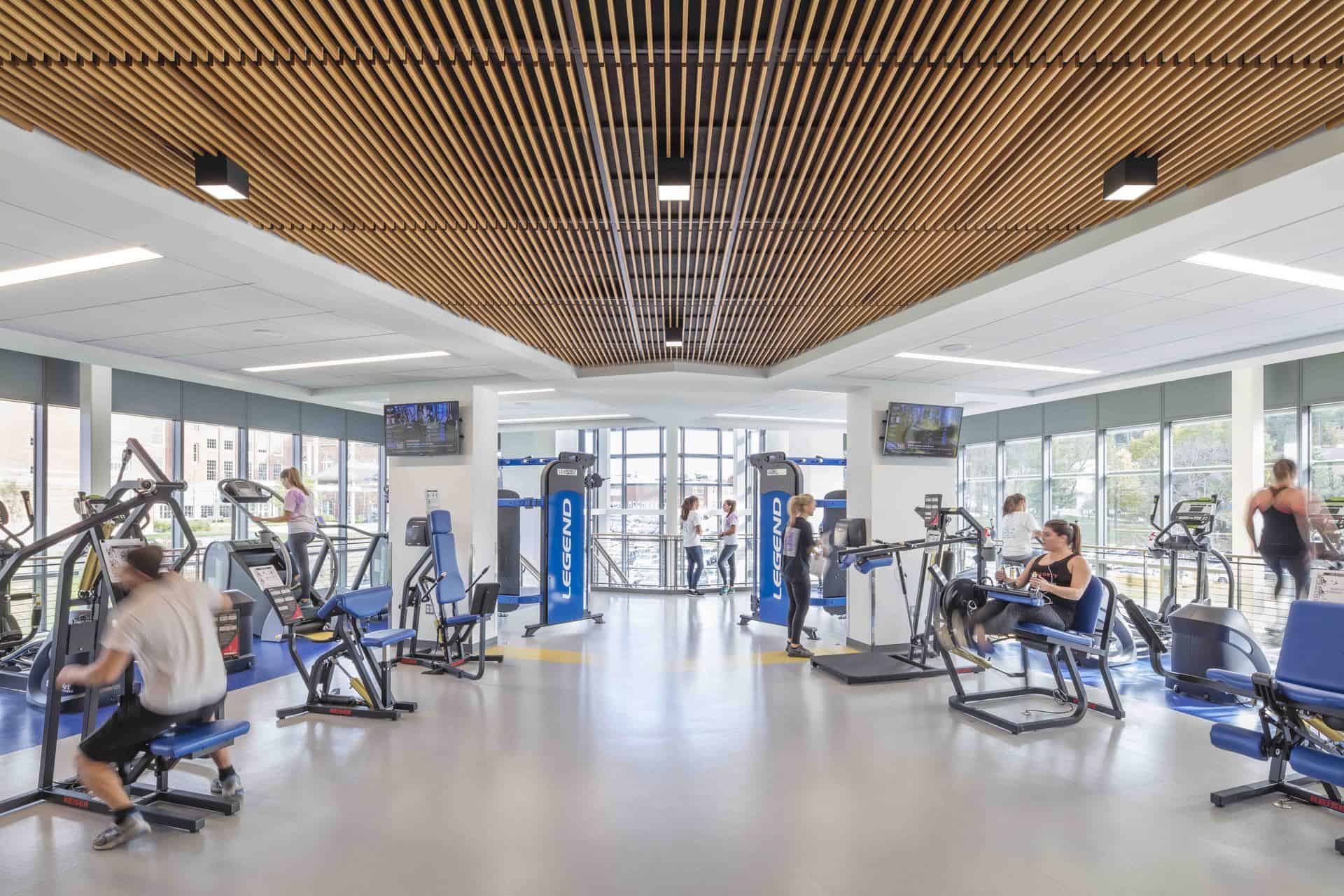Designed by ARC
Worcester, MA – A Wellness Center at Worcester State University with fitness equipment that sends power back to the grid during a workout has earned a LEED Gold certification for sustainable design and energy performance from the U.S. Green Building Council.
Designed by Boston-based ARC/ Architectural Resources Cambridge for the Massachusetts Division of Capital Asset Management and Maintenance (DCAMM) and the university, the $52.6 million Wellness Center’s sports, fitness, and social spaces are a popular hub for the entire university community.
The 101,000sf Wellness Center hosts varsity and intramural sports and provides flexible space for fitness and health activities, community events, and university gatherings. It offers a two-level, 9,000sf fitness center, a 1,500-seat competition gymnasium and a separate multi-purpose gymnasium, an elevated indoor running and walking track, and student interaction and amenity spaces.
Within the fitness center, workout bikes and ellipticals are designed to generate electricity instead of consuming it. Thanks to an internal micro-converter embedded in the machines, the power produced during workouts is returned to the grid to power the lights and other equipment in the facility. In the first two months of operation, the power-producing machines generated 35,079 kilowatt hours, enough to provide the annual power for three average-size homes.
The use of this equipment underlines the commitment to sustainability and energy efficiency observed in the design of the Wellness Center. Other features include a solar-heated hot water system, rainwater harvesting and reuse, LED lighting, high-efficiency boilers, and lighting sensors that detect if there is sufficient daylight to allow lights to be turned off. The Wellness Center is the fourth LEED-certified building on the Worcester State University campus. The university has been named one of the most environmentally responsible colleges by The Princeton Review four years in a row.
-more-
The Wellness Center is also a landmark component of a 10-year, $200 million strategic capital development program that has helped to transform Worcester State University from a heavily commuter-based to college to one where 40 percent of full-time undergraduates live in residence halls, and where all students can enjoy a vibrant campus life offering a full range of athletic and wellness opportunities.
Funding for the Center was provided by DCAMM, which used state funding authorized in a higher education bond bill, the Massachusetts State College Building Authority, and the University.












